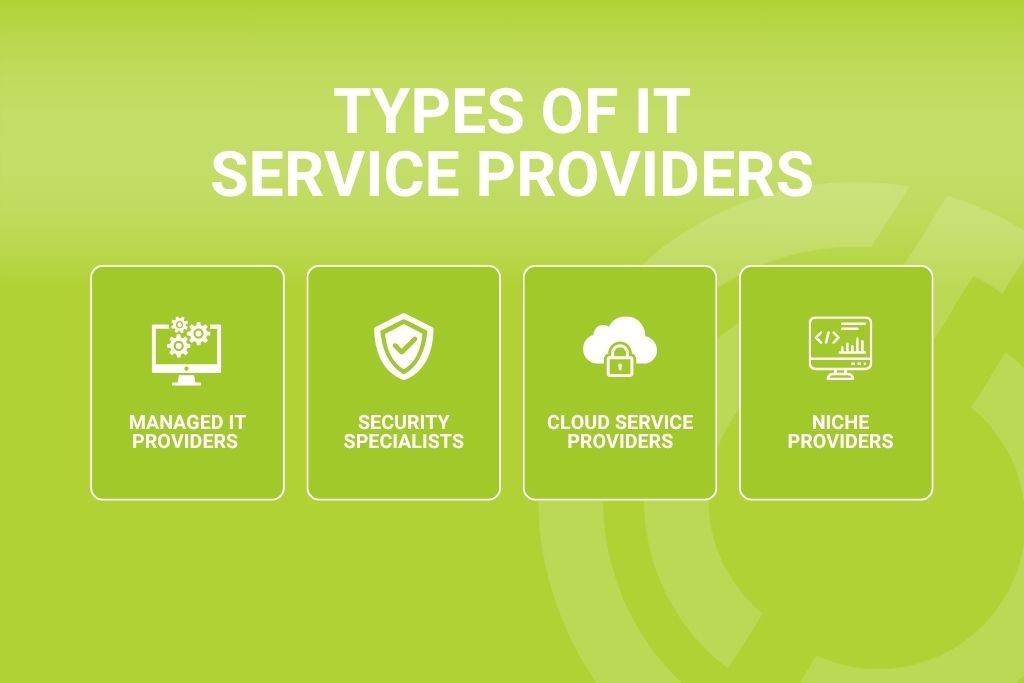No business operates without technology today. From emails to cloud platforms and data security, IT sits at the heart of daily operations. But managing it requires time, resources, and specialised expertise.
This is where a service provider plays a crucial role. Rather than building an internal IT team, businesses gain reliable, professional support through a managed service. It’s flexible, cost-effective, and tailored to meet specific business needs.
This guide explores what an IT service provider is, why managed IT services matter, and how partnering with the right managed service provider can support business goals and drive long-term success.
What is an IT service provider?

An IT service provider is a trusted partner that manages business technology on behalf of companies. Acting as an outsourced IT department, the provider delivers support, monitors systems, and ensures everything stays secure and efficient.
Through a managed service, the provider takes a proactive role, resolving issues before they cause downtime and tailoring solutions to suit the specific needs of each business. A managed service provider (MSP) helps businesses grow by offering stable, ongoing support and a wide array of technology services.Whether it’s daily troubleshooting, data protection, or cloud computing, the IT provider works quietly in the background so businesses can focus on what matters most.
According to the Australian Bureau of Statistics, over 55% of Australian businesses now rely on cloud computing services, making reliable IT support more critical than ever.
Types of IT service providers

Not all IT providers are the same. Each type focuses on different areas of support and technology. Choosing the right one depends on business needs, industry, and long-term goals.
Managed IT Providers (MSPs)
A managed service provider offers a complete package of services under a monthly plan. They take care of daily support, system monitoring, cybersecurity, backups, and IT planning. MSPs are ideal for businesses that want a proactive, all-in-one solution with predictable costs.
Cloud Service Providers
These providers help businesses adopt and manage cloud computing. Services may include cloud migration, file storage, software as a service (SaaS), and infrastructure as a service (IaaS). They allow companies to access data from anywhere while reducing the need for on-site hardware.
Security Specialists
Security-focused service providers offer advanced protection against cyber threats. They handle firewalls, endpoint security, compliance requirements, and cloud security services. These providers are vital for businesses handling sensitive data or meeting industry regulations.
Niche Providers
Some IT providers specialise in industries like healthcare, legal, or financial services. These niche providers understand sector-specific challenges, compliance needs, and systems. Their solutions are often tailored to your business and designed to meet strict requirements.
Each type of service provider plays a crucial role in delivering IT services that support business processes, reduce risk, and help businesses grow with the right technology in place.
Why businesses work with IT providers
Businesses of all sizes choose to partner with an IT service provider for one key reason: better results without the overhead. A managed service provider (MSP) helps reduce costs, protect data, and keep systems running efficiently, while offering expert support tailored to business needs.
1. Save Time and Money
Outsourcing to an IT service provider is often more cost-effective than building an internal team. It reduces hiring, training, and payroll costs while giving businesses access to a wide range of technology services and skilled professionals.
2. 24/7 Support When It’s Needed
IT providers deliver round-the-clock support. If something breaks after hours, a service ticket can be raised, and help is on the way. This constant availability minimises disruption and improves service quality.
3. Protection From Hackers and Data Loss
Cyber threats are constant. A managed service includes proactive security services like firewalls, monitoring, and backups. These reduce the risk of breaches and support business continuity by protecting valuable data.
4. Better Uptime and Faster Systems
System performance matters. IT providers use proactive tools to reduce downtime, optimise speed, and monitor networks in real-time, helping businesses stay productive and responsive.
5. Clear IT Planning and Strategy
An MSP doesn’t just react to problems, they help plan ahead. Through strategic IT planning, they align systems with business objectives, reduce guesswork, and ensure the right technology is in place as the business evolves.
6. Access to Expertise Without Hiring Full-Time
Hiring senior IT talent full-time can be expensive. A service provider offers that same level of expertise on demand. This allows businesses to solve complex problems without expanding their team.
By partnering with a reputable IT service provider, businesses gain the support, protection, and forward planning they need, without the strain of managing it all themselves.
How IT service providers work with you

A reputable IT service provider follows a clear, structured process. Each stage is designed to support your business with reliable, proactive technology services.
- Learn About the Business – The provider begins by reviewing the company’s existing systems, infrastructure, and service needs. This helps them understand how technology supports operations and where improvements are needed.
- Set Up Tools and Security – Once the review is complete, they install essential tools like monitoring systems, backup solutions, and cybersecurity protections. These help prevent downtime and keep systems secure.
- Establish a Service Level Agreement (SLA) – A service agreement outlines the scope of services, expected response times, and resolution commitments. This creates clarity and sets service expectations.
- Provide Ongoing Support and Monitoring – With systems in place, the provider monitors activity, resolves issues through service tickets, and offers proactive improvements. Their goal is to reduce risks and ensure long-term reliability.
What to look for when choosing a provider
Selecting the right IT service provider is a critical decision that affects day-to-day operations and long-term business growth. The right partner brings reliability, security, and strategic value. Here are the key things to look for.
Technical Expertise and Qualifications
Look for a provider with strong credentials, certifications, and a proven track record. Their expertise should cover core IT services, managed IT support, and emerging technologies relevant to your business.
Infrastructure and Technology Stack
A capable provider runs on stable, up-to-date systems. Their infrastructure should support the delivery of secure, scalable, and high-performance services, including cloud computing and disaster recovery.
Cybersecurity Standards and Compliance
Security should be embedded in everything they do. A reputable provider will follow best practices, implement proactive security services, and ensure compliance with data protection regulations like ISO 27001 or local privacy laws.
Range of Services and Scalability
The provider should offer a wide array of technology services and be able to scale as your business grows. Whether it’s cloud service management, automation tools, or long-term IT planning, flexibility is essential.
Support Quality and Responsiveness
High-quality support is more than answering phones. The provider should have clear service level agreements (SLAs), fast response times, and efficient resolution of service tickets to avoid unnecessary downtime.
Global Capability with Local Understanding
Choose a provider that understands local business needs while offering access to global tools and technologies. This balance helps deliver tailored services that support your business both locally and at scale.
Frequently Asked Questions
Are IT service providers in Australia different from overseas providers?
Yes. An Australian IT service provider understands local business needs, compliance standards, and market conditions. Working with a provider based in Australia also means faster response times, clearer communication, and better support for local infrastructure, all while staying aligned with Australian data privacy laws.
What’s the difference between an IT provider and a managed service provider (MSP)?
An IT provider may offer basic or ad hoc support. A managed service provider, or MSP, delivers proactive, ongoing services under a managed IT service model. This includes cybersecurity, monitoring, backups, cloud support, and strategic planning, all designed to support business growth.
Why choose managed IT services over hiring an internal IT team?
Managed IT services give businesses access to expert support without the high cost of full-time staff. An MSP manages systems around the clock, helps reduce downtime, and provides solutions tailored to your business, allowing internal teams to focus on operations and innovation.








